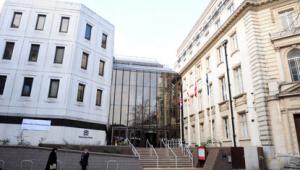25 February 2005
A change from current to capital expenditure on repairs offers a £10bn buffer
National statisticians are poised to reveal the value of a controversial revision to road maintenance accounting, which could gift Chancellor Gordon Brown a £10bn buffer zone to avoid a breach of his Golden Rule.
The Office for National Statistics will publish a statement on February 28 that will estimate the effect of switching road repairs and maintenance spending by local and national governments from current to capital expenditure.
A full valuation of the change will be included in official ONS accounts from March.
Sources told Public Finance that the figure involved was likely to be between £2bn and £2.5bn this year. If similar conversions are applied to National Accounts retrospectively, that would remove around £10bn from current expenditure over the course of the current economic cycle, generally accepted to have started around 1999/2000.
The statistical revision will not, however, increase the government's overall borrowing level.
The ONS was silent on the figures in advance of publication, claiming they involved 'price and market-sensitive' data, but gave a firm indication that any expenditure reclassified as investment would be applied to the National Accounts retrospectively. A spokesman said: 'That is our common practice.'
The usually mundane issue of road repairs escalated into a political row over what opposition parties see as the gradual 'politicisation' of the ONS. The proposed reclassification would help Gordon Brown to avoid breaching his Golden Rule of borrowing only to invest over the course of an economic cycle.
The government cannot currently borrow to fund road maintenance because it is classified as normal expenditure, but by redefining it as investment. Brown could later borrow to fund the programme should he need to.
The chancellor will build the ONS's revised figures into his forecasts through to 2010 when he delivers his Budget on Wednesday March 16.
Conservative shadow chancellor Oliver Letwin accused the government of 'fiddling the books', but the ONS played down accusations that the change was forced by a chancellor fearful that he could breach his self-imposed fiscal rules.
Outgoing national statistician Len Cook said: 'The decision to make the revisions was made by me.' He added that he was trying to strike a 'difficult balance' between adjusting sensitive data during an election period and providing accurate figures.
Economists, including those at the independent Institute for Fiscal Studies, have warned that Brown could breach his fiscal rules if he does not increase taxes to cover an estimated shortfall in national revenues.
The IFS has identified an £11bn 'black hole' in Brown's projections. But Christine Frayne, senior research economist at the IFS, said that if the roads maintenance revision were applied to a seven-year economic cycle, it 'would make it easier for the chancellor to meet his fiscal rules'.
However, accounting experts told PF that, under current accounting standards, the government could only successfully redefine road maintenance as investment expenditure if individual projects added value to roads for more than one year, and did not simply restore them to their natural state.
Tom Lewis, assistant director for central government at CIPFA, said: 'It is a keystone of accruals accounting that spending that creates some form of lasting benefit should be capitalised and depreciated.
'Maintenance expenditure is possibly the most difficult area to deal with, as it is hard to distinguish between work that simply deals with wear and tear and a genuine enhancement to an existing asset.'
PFfeb2005


















